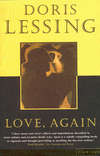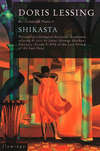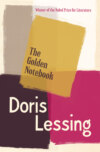Читать книгу: «The Diaries of Jane Somers»

The Diaries of Jane Somers
Doris Lessing

Table of Contents
Cover Page
Title Page
Preface
I THE DIARY OF A GOOD NEIGHBOUR
2 IF THE OLD COULD …
About the Author
By the Same Author
Read On
The Grass is Singing
The Golden Notebook
The Good Terrorist
Love, Again
The Fifth Child
Copyright
About the Publisher
Preface
I have been thinking about writing a pseudonymous novel for years. Like, I am sure, most writers. How many do? It is in the nature of things that we don’t know. But I intended from the start to come clean, only wanted to make a little experiment.
The Diary of a Good Neighbour got written when it did for several reasons. One: I wanted to be reviewed on merit, as a new writer, without the benefit of a ‘name’; to get free of that cage of associations and labels that every established writer has to learn to live inside. It is easy to predict what reviewers will say. Mind you, the labels change. Mine have been – starting with The Grass is Singing: she is a writer about the colour bar (obsolete term for racism) – about communism – feminism – mysticism; she writes space fiction, science fiction. Each label has served for a few years.
Two: I wanted to cheer up young writers, who often have such a hard time of it, by illustrating that certain attitudes and processes they have to submit to are mechanical, and have nothing to do with them personally, or with their kind or degree of talent.
Another reason, frankly if faintly malicious: some reviewers complained they hated my Canopus series, why didn’t I write realistically, the way I used to do before: preferably The Golden Notebook over again? These were sent The Diary of a Good Neighbour but not one recognized me. Some people think it is reasonable that an avowed devotee of a writer’s work should only be able to recognize it when packaged and signed; others not.
Again, when I began writing my Canopus series I was surprised to find I had been set free to write in ways I had not used before. I wondered if there would be a similar liberation if I were to write in the first person as a different character. Of course, all writers become different characters all the time, as we write about them: all our characters are inside us somewhere. (This can be a terrifying thought.) But a whole book would be a different matter, mean activating one of the gallery of people who inhabit every one of us, strengthening him or her, setting her (or him) free to develop. And it did turn out that as Jane Somers I wrote in ways that Doris Lessing cannot. It was more than a question of using the odd turn of phrase or an adjective to suggest a woman journalist who is also a successful romantic novelist: Jane Somers knew nothing about a kind of dryness, like a conscience, that monitors Doris Lessing whatever she writes and in whatever style. After all there are many different styles, or tones of voice, in the Canopus series – not to mention Briefing for a Descent into Hell and Memoirs of a Survivor – and sometimes in the same book. Some may think this is a detached way to write about Doris Lessing, as if I were not she: it is the name I am detached about. After all, it is the third name I’ve had: the first, Tayler, being my father’s; the second, Wisdom (now try that one on for size!), my first husband’s; and the third my second husband’s. Of course there was McVeigh, my mother’s name, but am I Scots or Irish? As for Doris, it was the doctor’s suggestion, he who delivered me, my mother being convinced to the last possible moment that I was a boy. Born six hours earlier, I would have been Horatia, for Nelson’s Day. What could that have done for me? I sometimes do wonder what my real name is: surely I must have one?
Another influence that went to make Jane Somers was reflections about what my mother would be like if she lived now: that practical, efficient, energetic woman, by temperament conservative, a little sentimental, and only with difficulty (and a lot of practice at it) able to understand weakness and failure, though always kind. No, Jane Somers is not my mother, but thoughts of women like my mother did feed Jane Somers.
I and my agent, Jonathan Clowes, decided in our plan of campaign that it would be fair to submit The Diary of a Good Neighbour to my main publishers first. In Britain these are Jonathan Cape and Granada. Cape (not Tom Maschler personally) turned it down forthwith. Granada kept it some time, were undecided, but said it was too depressing to publish: in these fallen days major and prestigious publishers can see nothing wrong in refusing a novel in which they see merit because it might not sell. Not thus, once, were serious literary publishers. I saw the readers’ reports and was reminded how patronized and put-down new writers are.
Michael Joseph, who accepted my first novel all those years ago, has now twice published me as a new writer. On taking The Diary of a Good Neighbour, they said it reminded them of Doris Lessing, and were taken into our confidence and entered with relish into the spirit of the thing. The redoubtable Bob Gottlieb of Knopf in New York said at once, Who do you think you are kidding? – or words to that effect. Interesting that these two great publishing firms, crammed with people and the possibilities of a leak, were able to keep the secret as long as they wanted: it was dear friends who, swearing their amazing and tested reliability, could not stand the strain.
Three European publishers bought Good Neighbour: in France, in Germany, and in Holland. My French publisher rang up to say he had bought this book, had I perhaps helped Jane Somers, who reminded him of me?
This surely brings us back to the question: what is it that the perspicacious recognize, when they do? After all, Jane Somers’s style is different from Lessing’s. Each novel or story has this characteristic note, or tone of voice – the style, peculiar to itself and self-consistent. But behind this must sound another note, independent of style. What is this underlying tone, or voice, and where does it originate in the author? It seems to me we are listening to, responding to, the essence of a writer here, a groundnote.
We – that is agent, publishers and I – believed the reviewers would guess at once. But not one did. A few people, not all reviewers, liked The Diary of a Good Neighbour. It was mostly women journalists in women’s magazines who reviewed it, because Jane Somers was described on the dust jacket as a well-known woman journalist. (It was enough, it seems, to say it for people to believe it.) This neatly highlights the major problem of publishing: how to bring a book to the attention of readers. The trigger here: the phrase woman journalist. (Some potential reviewers, male, were put off by it.) It is this situation that has given rise to all these new promotional schemes in Britain: The Best of Young British Novelists, The Best Novels of Our Time, the razzmatazz prizes, and so on. The problem can only exist, it seems to me, because so many good novels are being written. If there were only a few, there would be no difficulty. Ever more loudly shrill the voices, trying to get attention: this is the best novel since Gone With the Wind, War and Peace and The Naked and the Dead! Overkill earns diminishing returns and numbed readers return to former habits, such as relying on intuition and the recommendation of friends. Jane Somers’s first novel (first serious novel – of course she had written those romantic novels which were not reviewed at all, but sold very well!) was noticed, and got a few nice little reviews. In short, it was reviewed as new novels are. And that could easily have been that. Novels, even good ones, are being published all the time that have what publishers call ‘a shelf life’ (like groceries) of a few months. (Once they used the phrase as a joke, sending themselves up, but now they use it straight. ‘The shelf life of books is getting shorter,’ you’ll hear them say. ‘It’s down to a few weeks now.’ As if it all had nothing to do with them. And it hasn’t: the mechanisms for selling dominate their practices; the tail wags the dog.) A first novel can be remaindered and out of print and vanish as if it had never been, if unlucky enough not to win a prize or in some way attract a spotlight such as the admiration of a well-known writer who cries (see above), ‘This is the greatest novel since Tom Jones.’ Or, making accommodation to the times, ‘More exciting than Dallas!’
The American publisher was asked why more had not been done to promote The Diary of a Good Neighbour, which in the opinion of the enquirer, a literary critic, was a good novel, but the reply was that there was nothing to promote, no ‘personality’, no photograph, no story. In other words, in order to sell a book, in order to bring it to attention, you need more than the book, you need the television appearance. Many writers who at the start resisted have thought it over, have understood that this, now, is how the machinery works, and have decided that if – in fact, even if it is not acknowledged – they have become part of the sales departments of their publishers, then they will do the job as well as they can. It is remarkable how certain publishers wince and suffer when writers insist on using the right words to describe what is happening. In very bad taste, they think it is, to talk in this way. This attitude is a relic of the gentleman publisher, a contradiction which has bedevilled the publishing of serious (as distinct from commercial) books. On the one hand, a book has to be promoted: oh, but what a distasteful business it is! One of the problems of the (‘serious’ as distinct from the ‘commercial’) author is this attitude on the part of his or her publisher. You are pressured to do interviews, television and so on, but you are conscious that the more you agree, the more you are earning his or her contempt. (But looking back it seems to me that men publishers are more guilty of this hypocrisy than women publishers.) I have sometimes gloomily had to conclude that the only writer some publishers could really respect would be one who wrote a thirty-page masterpiece, reviewed by perhaps three critics, every ten years: this paragon would live on a mountain top somewhere and never, ever, give interviews. Now, there’s a real artist!
If Jane Somers had only written one serious novel, which sold, as first novels do, 2,800 copies in America and 1,600 copies in Britain, by now it would be remaindered and pulped, and she would be cherishing half a dozen fan letters.
But she wrote a second. Surely this time people must see who the real author was? But no.
Predictably, people who had liked the first book were disappointed by the second. And vice versa. Never mind about the problems of publishers: the main problem of some writers is that most reviewers and readers want you to go on writing the same book.
By now, the results of friends’ indiscretions meant that some people in the trade knew who Jane Somers was and – I am touched by this – clearly decided it was my right to be anonymous if I wished. Some, too, seemed inclined retrospectively to find merit.
One of my aims has more than succeeded. It seems I am like Barbara Pym! The books are fastidious, well written, well crafted. Stylish. Unsparing, unsentimental and deeply felt. Funny, too. On the other hand they are sentimental, and mawkish. Mere soap opera. Trendy.
I am going to miss Jane Somers.
Unexpected little sidelights. One review was a nasty little reminder of how many people reach instinctively for their revolvers at the mention of something they don’t like. From the hard left (and, perhaps, not so hard left: it is a disease that spreads easily), dislike of Jane Somers’s politics was characteristically expressed in the demand that such books should not be published. Just like the hard (and sometimes not so hard) right. ‘The publishers should be sued for publishing this book.’ (Not Jane Somers’s, one of Lessing’s.) Alas, poor Liberty, the prognosis is not very good.
Finally, a treasured memory, which I think is not out of place here. Imagine the book editor of a famous magazine (let us call it Pundit) standing in his office with books sent him for review stacked all over the table, on the floor, everywhere. He is harassed; he is desperate. He deals me out books to review, and mostly I hand them back again. Then he gives me another: ‘Please review this book,’ he cries. ‘No one wants to review it. What am I going to do? Please, please say yes.’
‘But it is a very bad book,’ I say, returning it to him. ‘Just ignore it.’
‘But we can’t ignore it. We have to review it.’
‘Why do you? It will take up the space that could be used for a good book.’
‘The Viewer has reviewed it, they gave it all that space, so we must.’
‘You must be joking,’ I said, thinking that he was, but he wasn’t.
Doris Lessing
July 1984
I THE DIARY OF A GOOD NEIGHBOUR
The first part is a summing-up of about four years. I was not keeping a diary. I wish I had. All I know is that I see everything differently now from how I did while I was living through it.
My life until Freddie started to die was one thing, afterwards another. Until then I thought of myself as a nice person. Like everyone, just about, that I know. The people I work with, mainly. I know now that I did not ask myself what I was really like, but thought only about how other people judged me.
When Freddie began to be so ill my first idea was: this is unfair. Unfair to me, I thought secretly. I partly knew he was dying, but went on as if he wasn’t. That was not kind. He must have been lonely. I was proud of myself because I went on working through it all, ‘kept the money coming in’ – well, I had to do that, with him not working. But I was thankful I was working because I had an excuse not to be with him in that awfulness. We did not have the sort of marriage where we talked about real things. I see that now. We were not really married. It was the marriage most people have these days, both sides trying for advantage. I always saw Freddie as one up.
The word cancer was mentioned once. The doctors said to me, cancer, and now I see my reaction meant they would not go on to talk about whether to tell him or not. I don’t know if they told him. Whether he knew. I think he did. When they took him into hospital I went every day, but I sat there with a smile, how are you feeling? He looked dreadful. Yellow. Sharp bones under yellow skin. Like a boiling fowl. He was protecting me. Now, I can see it. Because I could not take it. Child-wife.
When at last he died, and it was over, I saw how badly he had been treated. His sister was around sometimes. I suppose they talked. Her manner to me was like his. Kindly. Poor Janna, too much must not be expected.
Since he died I have not seen her, nor any of that family. Good riddance. I mean, that is what they think of me. I would not have minded talking to his sister about Freddie, for I did not know much about him, not really. But it is a bit late for that.
When he died, and I found I was missing him so much, I wanted to know about times in his life he hardly ever mentioned. Like being a soldier in the war. He said he hated it. Five years. Nineteen to twenty-four. They were wonderful years for me. I was nineteen in 1949, beginning to forget the war, and making my career.
And yet we were close. We had all that good sex. We were perfectly adjusted in that, if nothing else. Yet we could not talk to each other. Correction. Did not talk to each other. Correction. He could not talk to me because when he started to try I shied away. I think the truth is he was a serious inward sort of person. Just the kind of man I would give anything for now.
When he was dead and I was going mad for sex, because for ten years I had always had anything I wanted there for the asking, I was sleeping about, I don’t like to think how many. Or who. Once at an office party I looked around and saw I had had sex with half the men there. That gave me a shock. And always I had hated it: being a bit tight and after a good meal I am in a hurry, sex. It was not their fault.
That came to an end when Sister Georgie came to see me and said it was my turn for Mother. I felt very sorry for myself again. Now I think she might well have said something before! Husband, four children, small house – and she had had Mother since Daddy died, eight years. I had no children, and with Freddie and I both working there was no shortage of money. Yet there had never been a suggestion Mother should live with us. Or one that I can remember. But I was not the kind of person who looked after a widowed mother. Mother used to say what I spent on my face and my clothes would feed a family. True. It is no good pretending I regret that. It sometimes seems to me now it was the best thing in my life that – going into the office in the morning, knowing how I looked. Everyone took notice, what I was wearing, how. I looked forward to the moment when I opened the door and went through the typing pool and the girls smiled enviously. And then the executive offices, the girls admiring and wishing they had my taste. Well, I’ve that, if nothing else. I used to buy three, four dresses a week. I used to wear them once or twice, then into jumble. My sister took them for her good causes. So they weren’t wasted. Of course that was before Joyce took me in hand and taught me really how to dress – style, not just fashion.
It was when Mother came to live with me I knew I was a widow.
It wasn’t too bad at first. She wasn’t very well but she amused herself. I couldn’t bring a man home if I fancied him, but I secretly was quite glad. I can’t ask you in, you see I have my aged mother, poor Janna!
It was a year after she came she got sick. I said to myself, Now, this time you aren’t going to pretend it isn’t happening. I went with her to the hospital. They told her it was cancer. They talked a long time about what would happen. They were kind and sensible. The doctors could not talk to me about what was happening to my husband, but they could talk straight to my mother about what was happening to her. Because of what she was. It was the first time in my life I wanted to be like her. Before that I had always found her embarrassing, her clothes, her hair. When I was out with her I used to think, no one would believe I could be her daughter, two worlds, heavy suburban respectable – and me. As I sat there beside her and she talked about her forthcoming death with the doctors, so dignified and nice, I felt awful. But I was scared witless, because Uncle Jim died of cancer, and now her – both sides. I thought: will it be my turn next? What I felt was, it isn’t fair.
While Mother was dying I was doing my best, not like Freddie where I simply didn’t want to know. But I couldn’t do it. That is the point. I used to feel sick and panicky all the time. She went to pieces so fast. Went to pieces – that was it. I hate physical awfulness. I can’t stand it. I used to go in, before leaving for work. She was in the kitchen pottering about in her dressing gown. Her face yellow, with a sick glisten on it. The bones showing. At least I didn’t say, Are you feeling a bit better, that’s good! I sat down with her and drank coffee. I said, Can I drop into the chemist’s – because there were so many pills and medicines. And she said, Yes, pick up this or that. But I could not kiss her. Well, we aren’t exactly a physically affectionate family! I can’t remember ever giving my sister a good hug. A peck on the cheek, that’s about it. I wanted to hold Mother and perhaps rock her a little. When it got towards the end and she was being so brave and she was so awfully ill, I thought I should simply take her into my arms and hold her. I couldn’t touch her, not really. Not with kindness. The smell … and they can say it isn’t infectious, but what do they know? Not much. She used to look at me so straight and open. And I could hardly make myself meet her eyes. It wasn’t that her look asked anything. But I was so ashamed of what I was feeling, in a panic for myself. No, I wasn’t awful, as I was with Freddie. But it must have seemed to her that there was nothing much there – I mean, as if I was nothing much. A few minutes in the morning, as I rushed off to the office. I was always latish back, after supper with someone from work, Joyce usually, and by then Mother was in bed. She was not asleep, I wished she was! I went in and sat with her. She was in pain, often. I used to get her medicines ready for her. She liked that, I could see. Support. Of a kind. We talked. Then Sister Georgie took to coming up two or three afternoons in a week and being with her. Well, I couldn’t, I was working; and her children were at school. I used to come in and see them sitting together. I used to feel sick with envy because they were close. Mother and daughter.
Then when Mother went into hospital, Georgie and I took it in turns to visit. Georgie used to have to come up from Oxford. I don’t see how I could have gone more often. Every other day, two or three hours in the hospital. I hated every second. I couldn’t think of anything to say. But Georgie and Mother used to talk all the time. What about! – I used to listen, absolutely incredulous. They would talk about Georgie’s neighbours, Georgie’s neighbours’ children, their husbands, their friends’ friends. They never stopped. It was interesting. Because they were so involved with it all.
When Mother died I was pleased, of course. And so was Georgie. But I knew that it was very different, Georgie saying it, and my saying it. She had a right to say it. Because of what she was. Georgie was with Mother every minute of the day and night for a month before Mother went. I had learned by then not to hate the physical side so much, Mother almost a skeleton with yellow skin over it. But her eyes were the same. She was in pain. She did not pretend she wasn’t. She held Georgie’s hand.
The point was, Georgie’s was the right kind of hand.
Then I was alone in our flat. Once or twice one of the men came home. It wasn’t anything much. I don’t blame them at all, how could I? I had already begun to understand that I had changed. I couldn’t be bothered! How about that! Not that I didn’t need sex. Sometimes I thought I’d go mad. But there was something dreary and repetitive. And the place was full of Freddie. I could see myself becoming a monument to Freddie, having to remember him. What was the use of it? I decided to sell the flat and get something of my own. I thought that out for a long time, months. I saw even then it was a new way of thinking for me. Working on the magazine, I think differently, quick decisions, like being kept on the top of a jet of water. I am good at all that. That was why I was offered the job in the first place. Funny thing, I hadn’t expected it. Other people knew I was going to be offered assistant editor, not me. Partly, I was so involved with my image, how I projected myself. My image first was light-hearted, funny Janna with her crazy clothes, ever so clever and Girl Friday. Then, after Joyce, very expensive and perfect and smart and dependable, the person who had been there longest, with her smart trendy husband off-stage. Not that Freddie would have recognized himself in that. Then, suddenly (so it seemed) a middle-aged woman. Smart. Handsome. It was hard to take. It is still hard.
A handsome, middle-aged widow with a very good job in the magazine world.
Meanwhile I was thinking about how I ought to live. In Freddie’s and my flat I felt I was being blown about like a bit of fluff or a feather. When I went in after work, it was as if I had expected to find some sort of weight or anchor and it wasn’t there. I realized how flimsy I was, how dependent. That was painful, seeing myself as dependent. Not financially, of course, but as a person. Child-daughter, child-wife.
I wasn’t in the way of thinking I should get married again. I couldn’t see myself. Yet I was saying to myself, you must marry, you must, before it is too late. And it is what even now, sometimes, I want to do. Particularly now that I think I am not quite so awful as I was. But when I think, I know I shouldn’t get married. Anyway, no one has asked me!
I sold the flat and got this one. A room to sleep in, a room to live in, a study. A large expensive block of flats. But I am hardly ever here. When I am, I think a lot.
This way of thinking … it is not so much thinking as holding things in your mind and letting them sort themselves out. If you really do that, slowly, surprising results emerge. For instance, that your ideas are different from what you had believed they were.
There are things I need to think out, which I haven’t got around to yet.
Joyce, for one. That office of ours, top floor, sunlight and weather all around it. Her long table with her behind it, my long table with me behind it, facing each other. We’ve sat there for years now, opposite, making the magazine work. Then the long trestle down one side, with all the things we need on it, the machines, the drawing boards, the photographs. And the small table on the other where the secretaries sit when they come in to take notes, or anyone we want to talk to. It gives me pleasure to think of it, because it is so right, so apt, fits so exactly with what goes on. But I must think, must think … there is a feeling of discomfort, as if there is something not quite right.
After I moved into the new flat I soon saw that my life was entirely in the office. I had no life at home. Home. What a word! It was the place I prepared myself for the office, or rested after work.
One of the things I am thinking is that if I lost my job, there wouldn’t be much left of me. I look at the clever girls, fighting their way up. I find myself looking at one, Phyllis, for instance, and reflecting. Yes, she’s the right material, she can fit words together, interview anyone, edit, she has a mind like scissors, she never panics.
Does she understand how things really work? What do I mean by that? A great deal. Everything. She’s pushy and impatient, you’ve got to know how to let things happen.
What I was thinking most of all was that I had let Freddie down and had let my mother down and that was what I was like. If something else should turn up, something I had to cope with, like illness or death, if I had to say to myself, Now, you will behave like a human being and not a little girl – then I couldn’t do it. It is not a question of will, but of what you are.
That is why I decided to learn something else.
I saw in the paper the advertisement, Would you like to befriend an old person? The picture of a dear old lady. A dear, sweet old thing. Everybody’s favourite granny. Ha! I rang up and went to see them. Miss Snow. Philanthropist. I went with her to visit Mrs York. We all three had tea together in a little flat in Kensington. It seemed to me false and awful. I thought Miss Snow was condescending but didn’t know it. Mrs York, a large slow invalid, pale and with a puffy doughy face. Little complaining eyes. I could see she didn’t like Miss Snow. I sat there and thought, what the hell am I doing here? What good does this do Mrs York? Am I to visit her once a week on Sundays and bring her cake and ask how her rheumatism is? Miss Snow knew I felt like this, and when we said goodbye on the pavement she was perfunctory. Yes, give me a ring, Mrs Somers, if you feel you want to do this work, and she got into her Mini and was off. A failure. Well, all in the day’s work, she was thinking.
Someone else would have to be found for Mrs York. But I did not feel lacking this time. Mrs York was simply not for me. I used to look at the advertisement with the dear sweet old lady and think of awful Mrs York and feel a sort of jeer.
Meanwhile, opposite me, on the landing, Mrs Penny. She is seventy, she is alone, and she is longing for me to befriend her. I know this. I don’t want to. She knows it. She would take over my life. I feel smothered and panicky at the idea of being at her beck and call.
But then I was in the chemist’s and this happened.
I saw an old witch. I was staring at this old creature and thought, a witch. It was because I had spent all day on a feature, Stereotypes of Women, Then and Now. Then not exactly specified, late Victorian, the gracious lady, the mother of many, the invalid maiden aunt, the New Woman, missionary wife, and so on. I had about forty photographs and sketches to choose from. Among them, a witch, but I had discarded her. But here she was, beside me, in the chemist’s. A tiny bent-over woman, with a nose nearly meeting her chin, in black heavy dusty clothes, and something not far off a bonnet. She saw me looking at her and thrust at me a prescription and said, ‘What is this? You get it for me.’ Fierce blue eyes, under grey craggy brows, but there was something wonderfully sweet in them.
I liked her, for some reason, from that moment. I took the paper and knew I was taking much more than that. ‘I will,’ I said. ‘But why? Isn’t he being nice to you?’ Joking: and she at once responded, shaking her old head vigorously.
‘No, oh he’s no good, I never know what he’s saying.’
He was the young chemist, and he stood, hands on the counter, alert, smiling: he knew her well, I could see.
Начислим
+4
Покупайте книги и получайте бонусы в Литрес, Читай-городе и Буквоеде.
Участвовать в бонусной программе




















